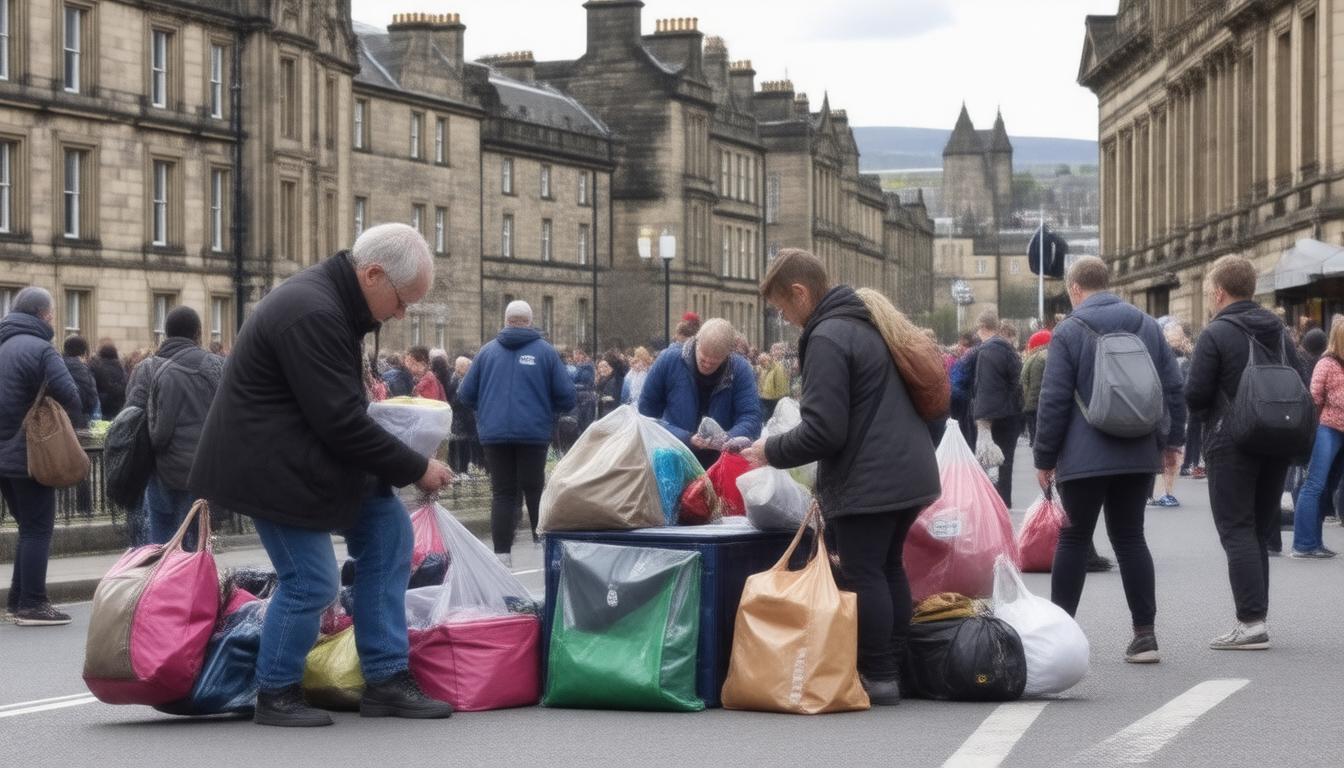In November 2024, the City of Edinburgh Council committed to an urgent plan to relocate hundreds of homeless individuals from unlicensed accommodations due to serious legal and health compliance concerns. The decision comes after the council faced warnings about potential legal ramifications for financially supporting unlicensed operators amidst a burgeoning homelessness crisis exacerbated by the aftermath of the Covid-19 pandemic. As the council navigates this complex issue, over 700 households are currently residing in 28 properties lacking the necessary Houses in Multiple Occupancy (HMO) licenses. The council has decided to prioritize the transition to licensed accommodation, pausing new social housing applications and non-urgent property repairs to redirect resources effectively. This article explores the background of the homelessness crisis in Edinburgh and the urgent measures being implemented by the council.
Key Takeaways
- Edinburgh Council is relocating over 700 homeless individuals from unlicensed temporary accommodations due to compliance and health concerns.
- The council has halted new social housing applications and non-urgent repairs to focus resources on this urgent relocation effort.
- The temporary housing crisis in Edinburgh has worsened significantly, with numbers in temporary accommodation rising from 3,570 in 2020 to over 5,000 this year.
Background of the Homelessness Crisis in Edinburgh
Background of the Homelessness Crisis in Edinburgh
The City of Edinburgh Council has made a crucial decision to address its escalating homelessness crisis by relocating hundreds of individuals currently residing in unlicensed temporary accommodations such as hotels and B&Bs. This decision stemmed from significant legal and health compliance concerns exposed during an emergency housing committee meeting held last week. Council officials have agreed to pause new social housing applications and non-urgent repairs, directing their attention towards transitioning residents out of 28 identified properties that do not comply with Houses in Multiple Occupancy (HMO) licensing regulations. The implications of this directive impact more than 700 households who find themselves in this precarious situation.
The crisis traces its roots back to the increased reliance on hotels and B&Bs as a temporary measure to combat the surge in homelessness triggered by the Covid-19 pandemic, leading to the implementation of emergency housing measures (City of Edinburgh Council, 2024). However, recent legal warnings indicated that the council could potentially be committing a criminal act by financially supporting these unlicensed operators who are failing to meet critical health and safety regulations. Consequently, the Council has set a target to transition residents to lawful licensed accommodations by early December, while simultaneously prioritizing the restoration of existing void properties for use.
The scale of temporary housing in Edinburgh has dramatically risen, with the number of households in temporary accommodation escalating from approximately 3,570 in 2020 to over 5,000 this year (Edinburgh News, 2024). This stark increase emphasizes the urgent need for substantial reforms and effective management of the city’s housing resources to ensure the well-being of its vulnerable populations.
Urgent Measures Implemented by the Council
In light of the current housing emergency, the City of Edinburgh Council is implementing significant changes to its housing strategy to better accommodate the needs of those affected by homelessness. The homelessness situation in Edinburgh has reached critical levels, prompting Council officials to scrutinize existing temporary accommodations comprehensively. City leaders have identified the urgent need to rectify the legal ramifications of using unlicensed facilities, which has resulted in a directive to cease new funding for these facilities immediately. This decision not only affects the operational practices of unlicensed accommodations but also raises deeper concerns about the long-term sustainability of the council’s housing policies that have been strained post-pandemic. Furthermore, the transition plans include a commitment to revitalizing existing council properties that have been left void, which is expected to add much-needed capacity to the city’s housing stock and should help alleviate some of the pressures faced by the homeless population throughout Edinburgh (Scottish Government, 2024).
As the council shifts its focus to lawful housing options, it is essential for community leaders, housing advocates, and social services to collaborate closely with the council to ensure the successful implementation of these changes. Stakeholders are actively encouraged to engage in discussions surrounding housing needs, regulatory compliance, and the broader implications of social housing policies. The urgency of this situation cannot be understated, as the well-being of countless families and individuals hangs in the balance amid the ongoing crisis.





